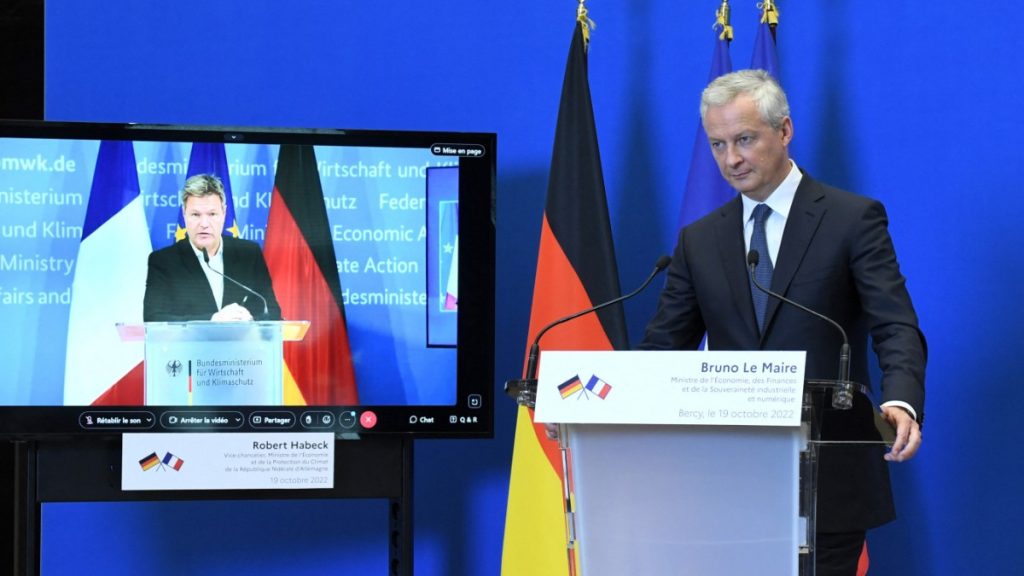High electricity and gas prices in Europe, high subsidies and tax cuts in the USA: given this starting point for 2023, quite a few EU politicians fear that more and more domestic industrial companies will find themselves in dire straits or that they may She finds herself in dire straits. Consider reducing parts of its production to North America or Asia.
In order to avoid this danger, Germany and France on Monday presented a list of measures with which they want to accelerate the climate-friendly restructuring of the European economy, preventing domestic companies from relocating and facing the so-called inflation reduction law (IRA). from the United States.
Among other things, economics ministers Robert Habeck and Bruno Le Maire propose relaxing the EU’s tough state aid law, adapting state orders in Europe more for domestic businesses and negotiating with Washington over exceptions to IRA regulations. The goal is to secure “the industrial base in Europe, especially green industries of strategic importance,” according to a statement by the heads of the two departments, with which they want to consolidate the efforts that have been going on for weeks to find a common strategy for all. 27 countries in the European Union.
The question of how Europe should react to the significant deterioration in domestic conditions while achieving the transition to a carbon dioxide neutral economy has become the most pressing problem of EU industrial policy in recent months. For example, the Inflation Reduction Act is the largest climate protection package the United States has ever launched. However, many discounts are only granted in full if the products are largely manufactured in the United States.
Habeck and Le Maire are now calling for the European Union to be granted the same exemptions Washington granted to neighboring countries such as Mexico and Canada. For example, European e-car manufacturers will be fully entitled to subsidies, even if they don’t eventually assemble a model in the USA.
Conversely, the two ministers also want to create their own European concessions for companies located here: EU governments must be able to design criteria for awarding government contracts in a way that only truly European companies can meet. In this context, for example, strict recycling regulations or upper limits for the production of ordered goods, which non-European companies are unable to comply with due to long delivery routes, can be envisaged.
Habeck and Le Maire also propose tax breaks, making previously unused EU money available to fund climate-friendly subsidies, dramatically speeding up approval processes and issuing purchase guarantees for wind turbines, for example. In addition, the EU must resort to giving certain state aid to companies in a different way than before if competing companies in other parts of the world receive similar subsidies. However, the French concern is missing from the paper, which would make it easier for Habeck to convince coalition partner FDP: the proposal does not mention the new joint EU debt.

“Tv expert. Hardcore creator. Extreme music fan. Lifelong twitter geek. Certified travel enthusiast. Baconaholic. Pop culture nerd. Reader. Freelance student.”






More Stories
D-AIXT: This is what Lufthansa's first Airbus A350 with the Allegris cabin looks like
USA: It is clear that the economy is losing momentum at the beginning of the year
Chocolate storm in Türkiye – the Swiss are confused